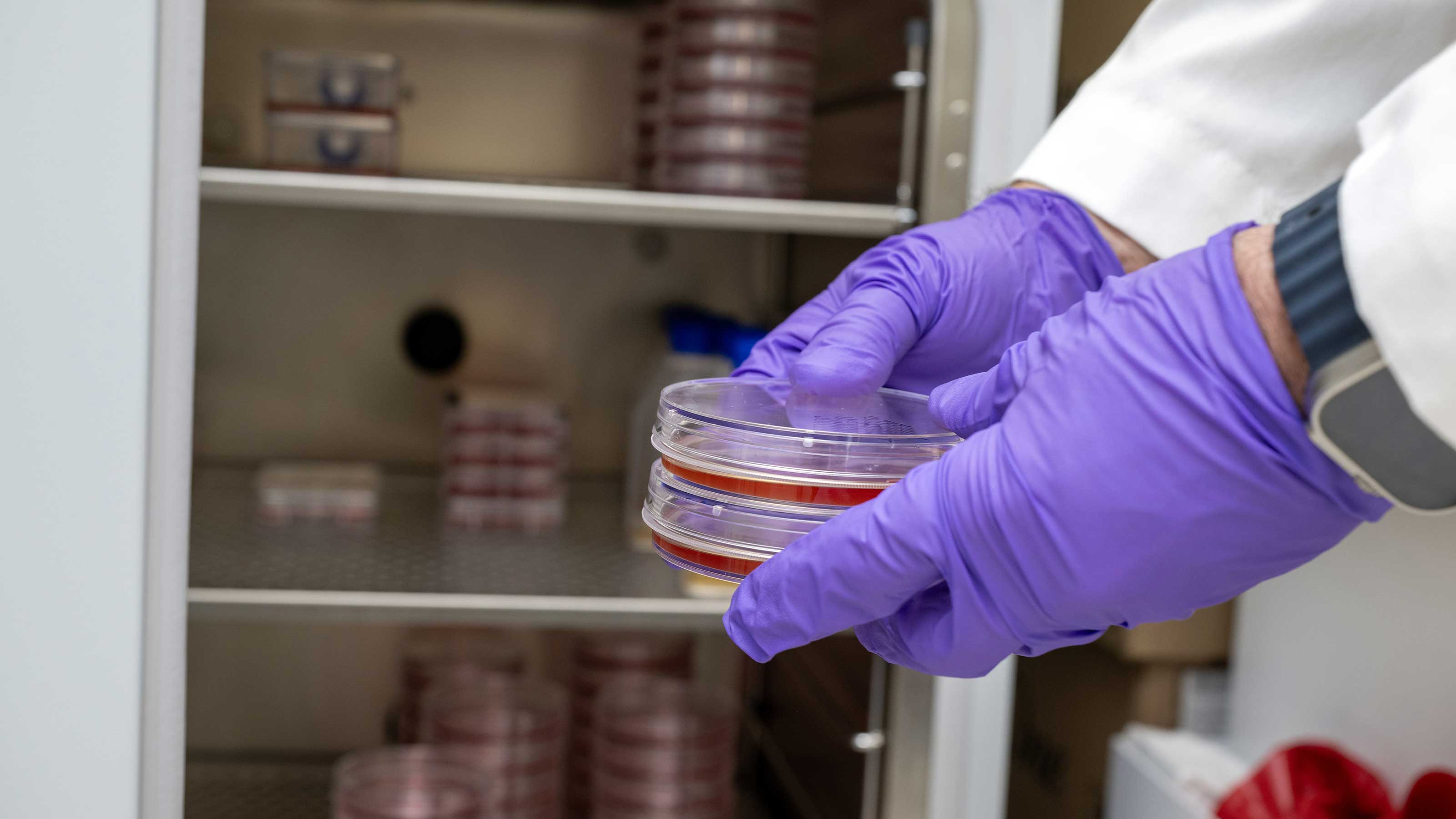
If you have a history of heart disease in your family, it can be challenging to find ways to support loved ones and reduce your risk. Genetic testing has opened up new opportunities for families to get answers and gain an understanding of why a certain condition is present.
As medical treatments advance, identifying a cause of heart disease in a family also can help relatives at risk monitor for disease and possibly start treatment sooner, ultimately preventing the development of severe illness.
Genetic testing continues to evolve as we learn more about the ways genetics play a role in the development of heart disease. But there’s a lot we can do now to help families cope and provide information for future generations.
What does genetic testing for a heart condition involve?
It’s best to start genetic testing for heart disease in someone with a known history or diagnosis. Testing involves collecting the person’s DNA, most often through a sample of saliva or blood, which we read using specific technology.
The reason we look at DNA is because it acts like an instruction manual for our bodies, and certain chapters of this manual, or genes, play specific roles in making sure our heart forms and stays healthy. We look through these genes for spelling errors, or variants, that may impact the way the body reads the instruction manual, which can lead to heart conditions.
Most genetic testing currently looks for rare genetic causes of heart disease, and the likelihood of finding a genetic cause greatly depends on the specific condition in question.
What can genetic testing find?
When genetic testing is pursued for someone with heart disease, it’s most often done through a panel that analyzes a variety of genes associated with specific conditions.
Results can be positive, negative or uncertain.
A positive result means a disease-causing variant was identified. This means we can (1) make recommendations for treating the disease in the person who was tested, and (2) make recommendations for testing that person’s relatives for a specific genetic variant so they can better understand their risk.
A negative result means no disease-causing variant was identified in the genes that were reviewed. Due to continual advancements in technology and research, this does not entirely rule out an underlying genetic cause. It means we have not identified a disease-causing variant within genes we currently know are associated with a specific heart disease.
An uncertain result means a variant was identified but there’s not enough information to determine if it’s a disease-causing or normal variation. A complex and thorough process is used to look at these variants to interpret their meaning. It may be a result we’ve never seen before, or it may be a result that has conflicting evidence on what it’s expected to do.
How likely is it that a family member will share a genetic risk factor?
If a genetic cause of someone’s heart disease is present, the risk of sharing the specific underlying genetic risk with first-degree relatives (parents, children and siblings) is as high as 50%. If a parent specifically has heart disease and a genetic cause is suspected, there is an up to 50% risk at each pregnancy for the child to inherit the genetic predisposition.
The genetic risk of a family history of heart disease is highest to first-degree relatives of someone with the specific condition. It’s important to be aware of your family history, as this can be an important part of understanding your risk of heart disease and if genetic testing would be helpful.
What types of conditions may warrant genetic testing?
Some conditions that may warrant genetic testing include:
- Early heart attacks or coronary artery disease (before age 65 in females, 55 in males)
- High cholesterol, especially if cholesterol levels are above 300mg/dL
- Heart muscle disease or cardiomyopathy (hypertrophic, dilated, restrictive or arrhythmogenic right ventricular cardiomyopathy). This may also be referred to as thick hearts, enlarged hearts, weak hearts or heart failure.
- Arrhythmia or abnormal heart rhythm
- Congenital heart defects, or heart defects present since birth
- The presence of enlarged aortas or aortic aneurysms, especially if they’re aortic root aneurysms
Genetic testing in someone with an already diagnosed condition can provide further information. It can confirm a diagnosis. It can possibly identify additional health concerns that should be monitored for. But, most of all, it can provide more specific information for relatives who are at risk. In these cases, if genetic testing is positive, testing becomes available to other family members and can provide a “yes” or “no” answer for whether they inherited the specific family genetic predisposition. This is known as cascade genetic testing.
What if a parent has died of heart disease?
In some cases, such as individuals who have relatives who’ve died of cardiac arrest or other heart-related causes, it may not be possible to initiate genetic testing in a person with known heart disease. In these cases, clinical cardiac testing, such as an echocardiogram (ultrasound of the heart), heart rhythm tests or blood tests to measure cholesterol levels may be completed first to find out if another relative has disease similar to the late relative. In this process, it’s also often helpful to gather available information about the late relative, such as a copy of an autopsy report or documentation of a known heart condition. Review of these family documents in combination with results from the clinical testing can help determine if genetic testing might be appropriate.
However, understanding the benefits, risks and limitations of genetic testing is important. A negative genetic test wouldn’t eliminate a genetic risk in the family. A positive genetic test can inform the family of a genetic risk for heart disease, but if someone doesn’t currently have disease, the test won’t let them know whether they’ll develop heart disease, when it would happen or how severe it would be. It would only establish a known, increased risk.
Lastly, it’s possible that an uncertain result is identified that doesn’t have enough clinical evidence to understand whether it is or is not disease-causing.
Does genetic testing always result in answers?
Genetic testing may not always provide an answer. The test’s sensitivity — a term for the likelihood of finding something — is not always 100% for heart disease. Part of this is because we’re still learning about the role of genetics in disease. It’s possible that, if someone gets a negative test in 2023, there may be a gene increasing their risk for heart disease that’s not yet known. In addition, technology used in genetic testing continues to advance. In time, updated genetic testing for a family may be warranted. It’s generally recommended to check in every couple years with your genetic health care providers to determine if updated genetic testing is warranted.
What is genetic counseling?
While genetic testing can be ordered by a variety of health care providers, genetic counselors are health care professionals trained in genetic testing and the complexity of genetic conditions. Genetic counseling is a process that can include genetic testing, but first includes an in-depth review of someone’s medical history and a drawing of their family tree. Understanding the context of this medical and family history can help in better understanding the genetic testing results and who in the family may be at risk.
Genetic counseling is available to individuals with a specific condition or to relatives with a family history. Genetic counseling does not always mean genetic testing has to be completed. If you’re interested in learning more about genetic testing but have hesitations or questions, genetic counseling is a great option.
How is testing done through a health care provider different from testing done through ancestry tests?
Genetic testing has grown significantly in recent years. As a result, genetic tests can be ordered directly by consumers. These direct-to-consumer (DTC) tests, such as ancestry tests, are different from clinical genetic tests that can only be ordered by health care providers. While DTC tests have increased the presence and access of genetic testing, there are technology limitations between DTC and clinical tests. The major differences:
- DTC tests look for common genetic changes, while clinical tests look for rare, disease-causing changes.
- The technology used in DTC tests isn’t always certified or standardized, while clinical testing companies and technology are.
- DTC tests tend to have higher false positive and higher false negative results than clinical testing. If someone has a positive test on DTC testing, it’s recommended they confirm it with a clinical-grade test.
How can I pursue heart-related genetic testing?
Genetic counselors are available for in-person visits and through telehealth. Primary care providers or other physicians, like cardiologists, can place a referral to a genetic counselor, or patients can self-refer. For information, contact the Ohio State Cardiovascular Genetic and Genomic Medicine Clinic at 614-293-7677.

Where you start your heart and vascular care matters
Ohio State is home to central Ohio’s only heart hospital ranked "Best" by U.S. News & World Report
Heart and vascular appointments




